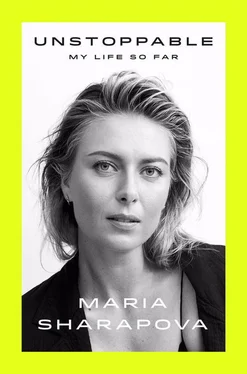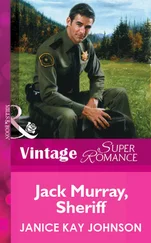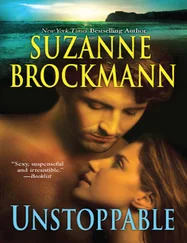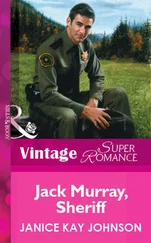The next morning I was on a flight to Napa Valley with my mom and some close friends. This was my postseason vacation. I told her about Sasha.
I said, “He’s tall and European.”
She said, “Masha, no. Basketball players rarely have a proper education.”
Well, I didn’t have a proper education either. And besides, he grew up in Europe, and has traveled around the world. He must have picked up something along the way.
She shook her head. She didn’t want to hear any more.
I didn’t think that was fair. I wouldn’t disqualify someone because their athletic lifestyle had prevented them from going to school. I decided to give him a chance.
We formed a bond, a closeness and understanding that I thought at the time only athletes could form. And we made sense together. He had a home in Los Angeles and was a professional athlete, he had the height, he had an Eastern European mentality, and he was close to his family. All good on paper.
But there were signs of trouble even in the early days. For one thing, he always insisted, when we were in L.A., that we stay at his place, even though my place was much bigger and much nicer than his place, and just down the street. It was a man thing, or maybe it’s just an Eastern European man thing. He always had to make it clear that he was the center of the action, that it was his place and his world and he was in control. He did not like to be reminded that I had a career of my own, a bigger place, and a bigger income. I couldn’t care less about those things, but they mattered to him. The fact that I was probably more successful in my world than he was in his was not something we could ever talk about or acknowledge. So we stayed at his place and did not talk about it. We just went on.
About a year into the relationship, we got engaged. It was less like a traditional plan to get married—I was definitely not ready for that—than a statement of commitment. Like going steady. I think this was also an Eastern European or Slavic thing. Like pledging your love. It was a way of telling the world that for me there was only him and for him there was only me. He gave me a ring, a huge rock, which I took off only when I played. I’d just stare at it in disbelief, thinking, “Am I really engaged?”
The tennis world is small and gossipy and my news quickly spread everywhere. Some of the other girls congratulated me or asked about my wedding or my honeymoon plans. One day, around this time, Serena Williams pulled me aside in the Wimbledon locker room. I was about to play my first match of the tournament and was trying to get into the mental space you need to reach when it’s time to play—players tend to leave each other alone in the hour preceding a match. Serena did not know or care. She was too excited and wanted to talk about my engagement. She’d just come back from an injury. I hardly ever talked to Serena, but she came on like we were old friends.
I said, “Hi, Serena, I’m glad you’re back.”
“I heard you got engaged,” she said, excited. “Sorry for that. HA! HA! HA!”
Then she just stood there, laughing and laughing at her own joke.
I just stood there, too. I mean, what was I supposed to say to that? I laughed with her. As I said, it was just an hour until my match. I was already in my dress, about to start my warm-up. She had to know that. She was done playing for the day, so what did she care? She saw me in the members’ locker room, sat next to me, looked around, as if checking for spies and eavesdroppers, then whispered, but it was one of those loud stage whispers, the kind you use if you really want to be overheard, saying, “You know, I got engaged, too! And I haven’t told anyone but you.”
Think about it. This was a person I’ve never had a real conversation with in my life. Our talk had never gone deeper than the sort of pleasantries you exchange at the net after a match. Still whispering, she said, “You won’t believe it, Maria, but I’m dating a guy. I have been with him such a long time. And he asked me to marry him. But I don’t know what to do. I want to get married, but I don’t think it’s the right time.”
I looked at my watch. Forty-five minutes till my match. First round of Wimbledon.
I said, “That’s interesting to hear, but now—”
She talked right over me.
“I’ve got to show you this,” she said, reaching into her bag and pulling out a little pouch with a clasp. “I have the ring right here,” she said, then dropped this big diamond into my hand.
“So are you engaged?” I asked. I didn’t know what else to say, what else to do.
“Yes and no,” she said, taking back the ring. “Or, well, yes. But nobody knows. My father doesn’t know. My mother doesn’t know. Only you. You are the only one who knows.”
I just sat there staring at her. I did not know what to say. Why was she telling me this? Then I went down and won my match. Afterward, when my coach and team rushed up to congratulate me, I said, “You will not believe what happened just before I got out here.”
Then, one day, Sasha was traded to the New Jersey Nets. It would be his chance to get more game time, or that was his plan. Hoboken, New Jersey, his new home: Where the hell was that? He told me it was just a ferry ride to one of my favorite cities in the world. I was skeptical. I started looking it up, searching for local coffee shops where I could sit while he was at practice. All I could find was a place called Carlo’s Bake Shop, apparently made famous by the reality TV show Cake Boss . If people are lining up outside a bakery to buy cannoli in Hoboken, I asked myself, how bad could the place be? Pretty bad. Even worse in February when the rivers are ice, the ferry is off-limits, and the traffic is so congested that the city I really wanted to be in felt like it was a million miles away.
Many months later, as the NBA was heading into a lockout, Sasha was considering a few financially appealing offers he’d received from abroad, deals I never thought he’d accept until, one day, he did. He signed with a Turkish team. Goodbye Hoboken, hello Yesilkoy. Another town I didn’t know anything about. I struggled with the idea, then I struggled even more with the reality.
We were now apart for months at a stretch, which gave me time to really think over the way we were struggling in our relationship. He so badly needed to be the man in the relationship, and my own career made it hard for him. The fact that I was more successful in my world than he was in his was something he could never acknowledge. My success, my fame, and my wealth were evidently becoming a struggle for him. Maybe it was always there, but our time apart really opened my eyes to it. Or maybe I just never wanted to admit it. Now it started to really bother me. It made me feel closed in, claustrophobic and trapped. In the months before the 2012 French Open, I started to withdraw from Sasha emotionally.
When I got to the locker room after winning the final of the French Open, with the trophy sitting in my lap, I dialed his number. He answered the phone, but I could hear the shot clock ticking in the background, players on the basketball court in the middle of practice. His coach had told him I’d won my match. He congratulated me. I was so excited, so emotional, that I then began thanking him. For being there for me during many challenging moments. For encouraging me when I was down. For pushing me, believing in me. He seemed genuinely moved, upbeat. It was more than I’d had from him in months. But when I called that night, his mood had changed. He sounded aggravated, almost angry. I asked him what was wrong. He said he’d watched my match when he got home, then the trophy ceremony. Now I knew exactly what was on his mind. He was mad that I hadn’t thanked him in my victory speech. That’s all he could think about it. For many months, I had been waiting for some sign from him, some hint. Now I had it. In just one sentence. Our relationship was over.
Читать дальше












